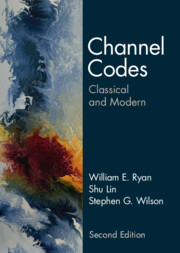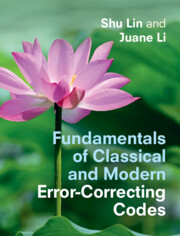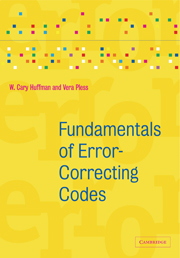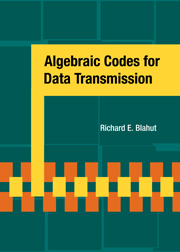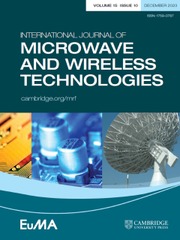Channel Codes
Channel coding lies at the heart of digital communication and data storage. Fully updated, including a new chapter on polar codes, this detailed introduction describes the core theory of channel coding, decoding algorithms, implementation details, and performance analyses. This new edition includes over 50 new end-of-chapter problems and new figures and worked examples throughout. The authors emphasize the practical approach and present clear information on modern channel codes, including turbo and low-density parity-check (LDPC) codes, detailed coverage of BCH codes, Reed-Solomon codes, convolutional codes, finite geometry codes, product codes as well as polar codes for error correction and detection, providing a one-stop resource for classical and modern coding techniques. Assuming no prior knowledge in the field of channel coding, the opening chapters begin with basic theory to introduce newcomers to the subject. Later chapters then extend to advanced topics such as code ensemble performance analyses and algebraic code design.
- Fully updated to cover innovations in the field since the publication of the first edition
- Starts with the basic theory before moving on to advanced topics, making it perfect for newcomers to the field of channel coding
- 300 end-of-chapter problems covering practical application and theory help students engage meaningfully with chapter learning
- 180 worked examples guide students through the practical application of the theory
Reviews & endorsements
‘This well-written volume is by three experienced coding theorists who have contributed so much to coding theory over the past few decades. While the volume covers classical algebraic coding theory, it has an emphasis on modern coding such as polar codes, turbo codes, and in particular the very important low-density parity check (LDPC) codes. The focus of the work is on the structure and practical aspects of implementing LDPC codes, and the numerous ways to decode them. It is unique in the very large number of error performance curves given, which are so effective in illustrating the theoretical issues raised for the various encoding/decoding techniques covered. It is a remarkable volume that is likely to become the standard reference both for professionals in industry implementing coded systems and as a graduate text.’ Ian Blake, University of British Columbia
‘The second edition of Channel Codes: Classical and Modern remains the single best source for a graduate course in coding theory, with enough material for two semesters. A new chapter on polar codes makes it the most up-to-date textbook in the field. It is both instructor and student friendly, with plenty of problems and illustrative examples. The authors are coding experts with an easy writing style, and their many years of experience, both academic and industrial, give the book a nice balance between theory and practice.’ Daniel Costello, University of Notre Dame
Product details
November 2024Hardback
9781009335904
790 pages
250 × 176 × 45 mm
1.44kg
Available
Table of Contents
- 1. Coding and Capacity
- 2. Finite Fields, Vector Spaces, Finite Geometries, and Graphs
- 3. Linear Block Codes
- 4. Convolutional Codes
- 5. Low-Density Parity-Check Codes
- 6. Computer-Based Design of LDPC Codes
- 7. Turbo Codes
- 8. Ensemble Enumerators for Turbo and LDPC Codes
- 9. Ensemble Decoding Thresholds for LDPC and Turbo Codes
- 10. Polar Codes
- 11. Finite-Geometry LDPC Codes
- 12. Constructions of LDPC Codes Based on Finite Fields
- 13. LDPC Codes Based on Combinatorial Designs, Graphs, and Superposition
- 14. LDPC Codes for Binary Erasure Channels
- 15. Nonbinary LDPC Codes.

